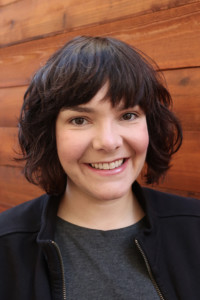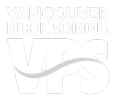 Vancouver School Psychologist Paulette Selman is the Washington State Association of School Psychologists’ 2020 Outstanding Advocate. She is the third recipient of the award and the first from Vancouver. The award is given to an individual who has worked to change policies on educational and mental health services at the state, district or school level.
Vancouver School Psychologist Paulette Selman is the Washington State Association of School Psychologists’ 2020 Outstanding Advocate. She is the third recipient of the award and the first from Vancouver. The award is given to an individual who has worked to change policies on educational and mental health services at the state, district or school level.
The Ogden Elementary psychologist was nominated by colleagues for her knowledge of best practices; cohesive perspective; and kind, approachable demeanor. Selman has advocated for improved caseloads for her colleagues and is a key member of Ogden’s support team for students. Said one of her nominators, “Paulette advocates for school psychologists so that school psychologists can advocate for students.”
Recently, Selman answered a few questions about her role.
How long have you worked at Ogden and in VPS?
This is my sixth year in VPS and at Ogden. I used to work at both Ogden and Chinook [Elementary].
How do school psychologists advocate for students?
A big part of our role is within special education. We lead teams that are trying to identify when kids have disabilities and what they need at school to help them access education. Within this process, school psychologists advocate for students to have the same educational opportunities as all other students, whether they have ADHD, autism, behavioral challenges or learning disabilities. Part of student advocacy is also parent advocacy. We help parents understand their child’s rights and what the school can offer.
What is the most fulfilling professional moment you have experienced?
One great moment was when the district increased school psychologist staffing. I worked with my colleagues for several years to educate folks on what school psychologists do and push for more access to psychological services for students and families. A few years ago the district made a change. We used to be staffed at one school psychologist for every 1,200 students enrolled in VPS, and now we are at one for every 950 enrolled students. We have fewer students so we are better able to help with preventing school problems and creating systems that help everyone.
One of your favorite sayings is “School psychologists can do that!” How do you see school psychologists providing leadership at the district level and beyond?
I love this saying because it hints at the broad training that school psychologists come in with. We are trained in all sorts of things, from dyslexia identification to dual language development to helping high school students graduate on time. I like to promote psychologist involvement on district-level teams, as we have a unique skill set that can be helpful for folks devising systems for all kids. We often bring in a focus on the data behind decision-making, as well as current best practice. School psychologists can do that!
Name three words that describe you.
Diplomatic, empathetic, organized.
When you’re not working, what do you like to do?
I enjoy wrangling my 6-year-old, finding the best food carts in Portland and biking and hiking our beautiful Northwest landscape.
